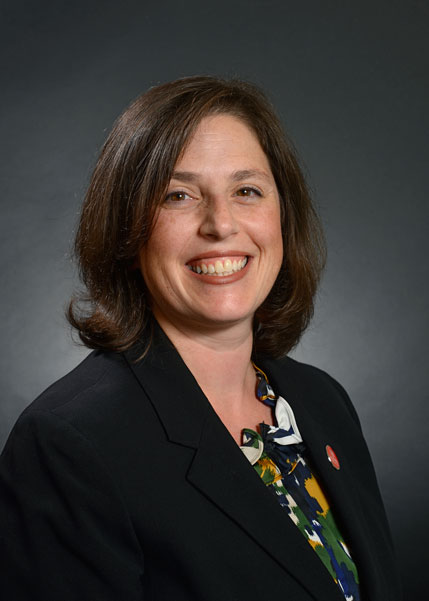Two former Clare Boothe Luce Professors at St. John’s University discuss their school’s “ethics-first” culture, the faith-based mission in which this practice is based, and their efforts to strengthen this commitment to ethics. We begin with a post from Professor Gina M. Florio, who discusses the basis of “ethics-first” culture in Catholic intellectual tradition and explores what it looks like to put ethics and responsibility at the forefront of academic learning. In the next piece, Professor Laura Schramm shares her personal journey developing ethics-based programs, which is rooted in a lifelong interest in ethical behavior.
If ever the time was right to develop an “ethics-first” culture in STEM, it is today. Rarely a day goes by without news related to the ethical implications of science and technology. From the environmental ramifications of expanding the use of pesticides on pollinator populations, to the protection of personal privacy on social media platforms and the Internet of Things, to the tensions between Native Hawaiian culture and exploration of the universe, to the birth of gene-edited “CRISPR babies,” evidence abounds for the centrality of STEM, as well as its vast ethical ramifications for our global society.
As a scientist and educator, I strive to cultivate ethical, civic-minded, global citizens of my students. Education at St. John’s University is grounded in the Catholic intellectual tradition, which centers around the disciplines of theology and philosophy and requires common coursework in morals and ethics. Working closely with students in the classroom and laboratory affords me and my colleagues in STEM the opportunity to extend this common coursework to build a broader, “ethics-first” culture.
What exactly do I mean by an “ethics-first” culture? Namely, putting ethics and responsible conduct at the forefront of education, research, and development in STEM.
In chemistry, we routinely work to develop and maintain a “safety-first” culture. In doing so, we are proactive about safety and reinforce this safety ethic through an approach known as RAMP—recognize, assess, and manage laboratory hazards, and plan for laboratory emergencies. My colleagues and I work closely with our students, staff, and administration to include safety at every stage of our students’ education and professional development.
More recently, we have begun laying an “ethics-first” foundation, recognizing that safety is just one aspect of ethical, responsible conduct in STEM. Our instruction targets ethics and responsible research conduct at multiple points along the undergraduate and graduate curriculum (including required safety training for laboratory instructors, students, and faculty researchers), and formal and informal discussion of case studies, such as those developed by the American Chemical Society and the National Academies of Sciences, Engineering, and Medicine.
While this is a good start, we recognize that culture change requires sustained commitment to the teaching of ethics at all levels within the institution. We must find ways to link these lessons back to the ethics and moral lessons that students learn about in their philosophy and theology courses. We can create pipelines of students for more formal training through existing curricular pathways, such as a minor in Philosophy of Science. We can work across disciplines and colleges to create new programs and centers focused on ethics. We can develop more robust interdisciplinary programming in collaboration with St. John’s Vincentian Center for Church and Society.
At St. John’s, we are inspired by the life of St. Vincent de Paul, frequently asking ourselves, as he did, “What must be done?” So, let us ask what must be done to promote deep understanding and dialogue around the ethics of STEM. Promoting an “ethics-first” culture positions our young STEM professionals with a toolbox full of the knowledge and skills necessary to engage in critically important work.
Author Bio
Gina M. Florio, Ph.D.
Associate Professor, Department of Chemistry
Former Clare Boothe Luce Professor
St. John’s University
Research in Dr. Florio’s laboratory focuses on understanding the fundamental physics and chemistry of interfacial systems, with particular emphasis on those occurring between organic molecules and metal or semimetal surfaces at the nanometer scale. The goals of her work are to understand how molecules behave when confined to an interface, how molecular properties are altered by the presence of the metal/semimetal, and how charge transport occurs at the metal-molecule interface. Characterization of interfacial systems is relevant to fields such as nanotechnology, molecular electronics, materials science, surface science, environmental chemistry, biology, and the basic energy sciences.








